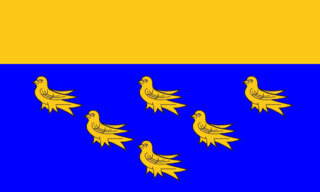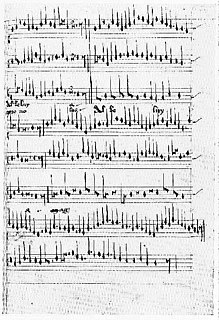Related Research Articles

West Sussex is a county in the south of England, bordering East Sussex to the east, Hampshire to the west and Surrey to the north, and to the south the English Channel.

Petworth is a small town and civil parish in the Chichester District of West Sussex, England. It is located at the junction of the A272 east-west road from Heathfield to Winchester and the A283 Milford to Shoreham-by-Sea road. Some twelve miles (21 km) to the south west of Petworth along the A285 road lies Chichester and the south-coast. The parish includes the settlements of Byworth and Hampers Green and covers an area of 2,690 hectares. In 2001 the population of the parish was 2,775 persons living in 1,200 households of whom 1,326 were economically active. At the 2011 Census the population was 3,027.
William Cornysh the Younger was an English composer, dramatist, actor, and poet.

Edward William Fitzalan-Howard, 18th Duke of Norfolk,, styled Earl of Arundel between 1975 and 2002, is a British peer who holds the office of Earl Marshal. As Duke of Norfolk, he is the most senior lay peer in the peerage of England.

A rape is a traditional territorial sub-division of the county of Sussex in England, formerly used for various administrative purposes. Their origin is unknown, but they appear to predate the Norman Conquest. Historically the rapes formed the basis of local government in Sussex.
In medieval and early Renaissance English polyphonic music, gymel is the technique of temporarily dividing up one voice part, usually an upper one, into two parts of equal range, but singing different music. Often the two voices sing a passage of intricate polyphony, beginning and finally converging on a unison, and often, but not always, the other voices drop out for a time.

The Eton Choirbook is a richly illuminated manuscript collection of English sacred music composed during the late 15th century. It was one of very few collections of Latin liturgical music to survive the Reformation, and hence is an important source. It originally contained music by 24 different composers; however, many of the pieces are damaged or incomplete. It is one of three large choirbooks surviving from early-Tudor England.

The Pepys Manuscript is a late fifteenth-century English choirbook, in the library of Magdalene College, Cambridge, MS Pepys 1236. Along with the Ritson Manuscript it is much less elaborate than the Eton, Lambeth and Caius Choirbooks; it contains shorter and simpler pieces which appear to have been written for smaller and less able choirs. The book received its name because it was part of the collection owned by Samuel Pepys. He described it as containing "monkish music of Edward IV's time, " but it appears on internal evidence to have been begun a year or two earlier. It was likely completed after 1465, as it contains music ascribed to Sir William Hawte – also referred to as a "Knight" – who was knighted in that year.
The Ritson Manuscript is a late fifteenth-century English choirbook, that is a major source for English carols. In addition to 44 carols, it includes three masses, 23 motets, several other sacred pieces, and secular works in English and French.
The Lambeth Choirbook – also known as the Arundel Choirbook – is an illuminated choirbook dating to the sixteenth century. It contains music for 7 Masses, 4 Magnificats, and 8 motets. Much of the music is by Tudor-period composers. The major contributors are Robert Fayrfax and Nicholas Ludford; between them they contributed at least ten of its nineteen pieces. Only three of Fayrfax's works have his name attached to them, but five other pieces are known as his; these, along with two by Ludford, are known from concordances in the Caius Choirbook and other manuscripts. Seven anonymous pieces exist in the book:
Edmund Sturton was an English composer of the Tudor period. Little is known about his life and career, but he is believed to be the same Sturton whose six-part setting of Ave Maria ancilla Trinitatis is found in the Lambeth Choirbook. Another six-part setting, this of the Gaude virgo mater Christi, may be found in the Eton Choirbook; its voices cover a range of fifteen notes.
Nicholas Ludford was an English composer of the Tudor period. He is known for his festal masses, which are preserved in two early-16th-century choirbooks, the Caius Choirbook at Caius College, Cambridge, and the Lambeth Choirbook at Lambeth Palace, London. His surviving antiphons, all incomplete, are copied in the Peterhouse Partbooks. Ludford is well-known as being the composer of the only surviving cycle of Lady Masses, small-scale settings of the Ordinary and Propers in three parts to be sung in the smaller chapels of religious institutions on each day of the week. Ludford's composing career, which appears to have ended in 1535, is seen as bridging the gap between the music of Fayrfax and that of John Taverner (1495–1545). Music scholar David Skinner has called Ludford "one of the last unsung geniuses of Tudor polyphony". In his Oxford History of English Music, John Caldwell observes of Ludford's six-part Mass and Magnificat Benedicta that it "is more a matter of astonishment that such mastery should be displayed by a composer of whom virtually nothing was known until modern times".
Dr David Skinner is a British musicologist and choir director. He is Director of Music at Sidney Sussex College, Cambridge. He co-founded the Cardinall's Musick and Magdala.
The Gyffard Partbooks are an important set of English Renaissance choral partbooks, containing pieces by composers such as Thomas Tallis and John Sheppard, as well as additional unnamed composers, which are not found in other sources.

Gonville & Caius College is a constituent college of the University of Cambridge in Cambridge, England. The college is the fourth-oldest college at the University of Cambridge and one of the wealthiest. The college has been attended by many students who have gone on to significant accomplishment, including fifteen Nobel Prize winners, the second-most of any Oxbridge college.
Walter Lambe was an English composer.

Alan Percy (c.1480-1560) was an English churchman and academic, Master of St John's College, Cambridge, and later Master of Trinity College, Arundel which he surrendered to Henry VIII in 1545.
Edmund Turges thought to be also Edmund Sturges was an English Renaissance era composer who came from Petworth, was ordained by Bishop Ridley in 155 0, and joined the Fraternity of St. Nicholas in 1522.
The historic county of Sussex in southern England has a rich musical heritage that encompasses the genres of folk, classical and rock and popular music amongst others. With the unbroken survival of its indigenous music, Sussex was at the forefront of the English folk music revivals of the 19th and 20th centuries. Many classical composers have found inspiration in Sussex, and the county continues to have a thriving musical scene across the musical genres. In Sussex by the Sea, the county has its own unofficial anthem.
The Forrest-Heyther partbooks are a set of six manuscript partbooks copied in England in the sixteenth century. They are an important source of polyphonic Mass Ordinary settings by composers from the reign of Henry VIII, including John Taverner and Robert Fayrfax.